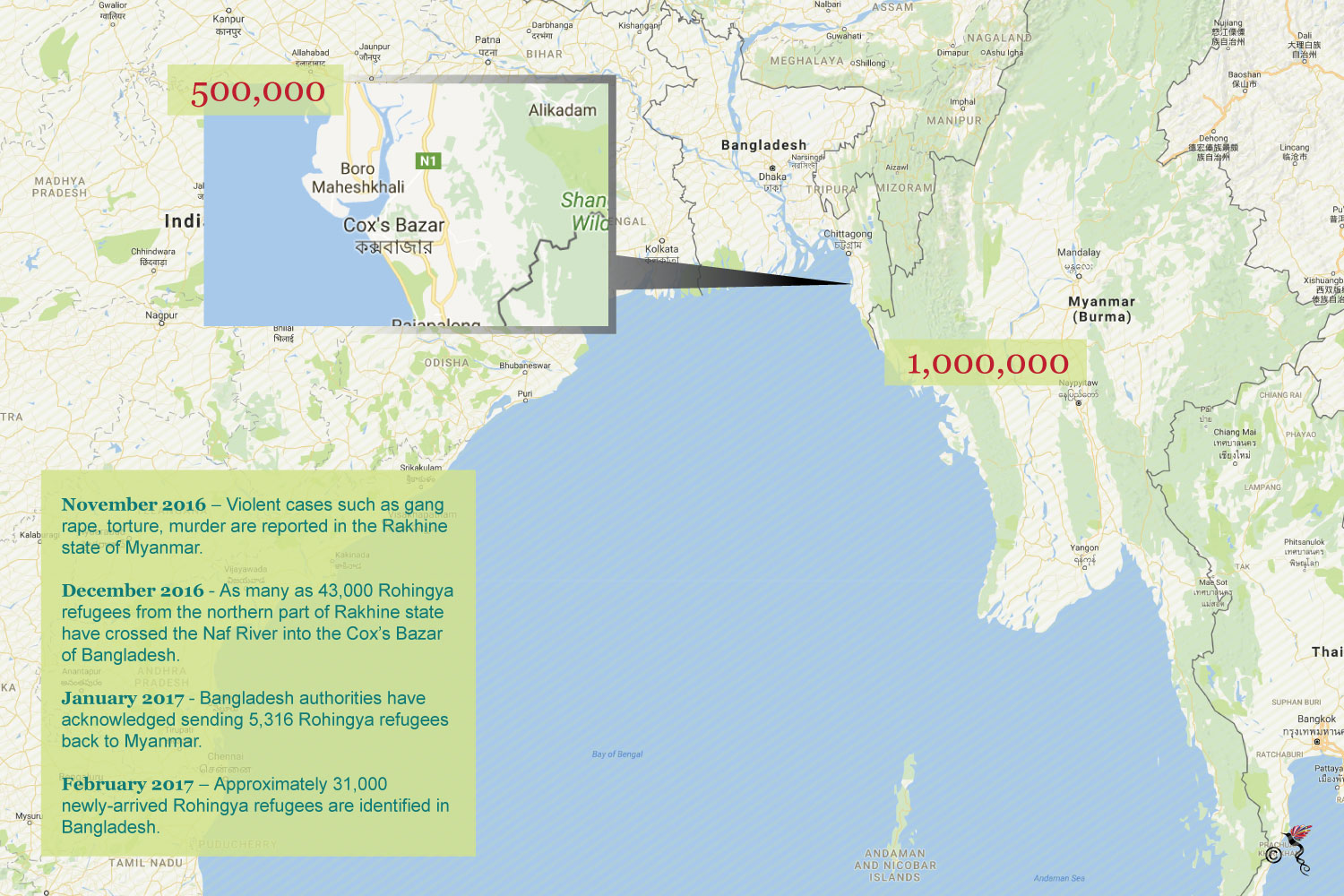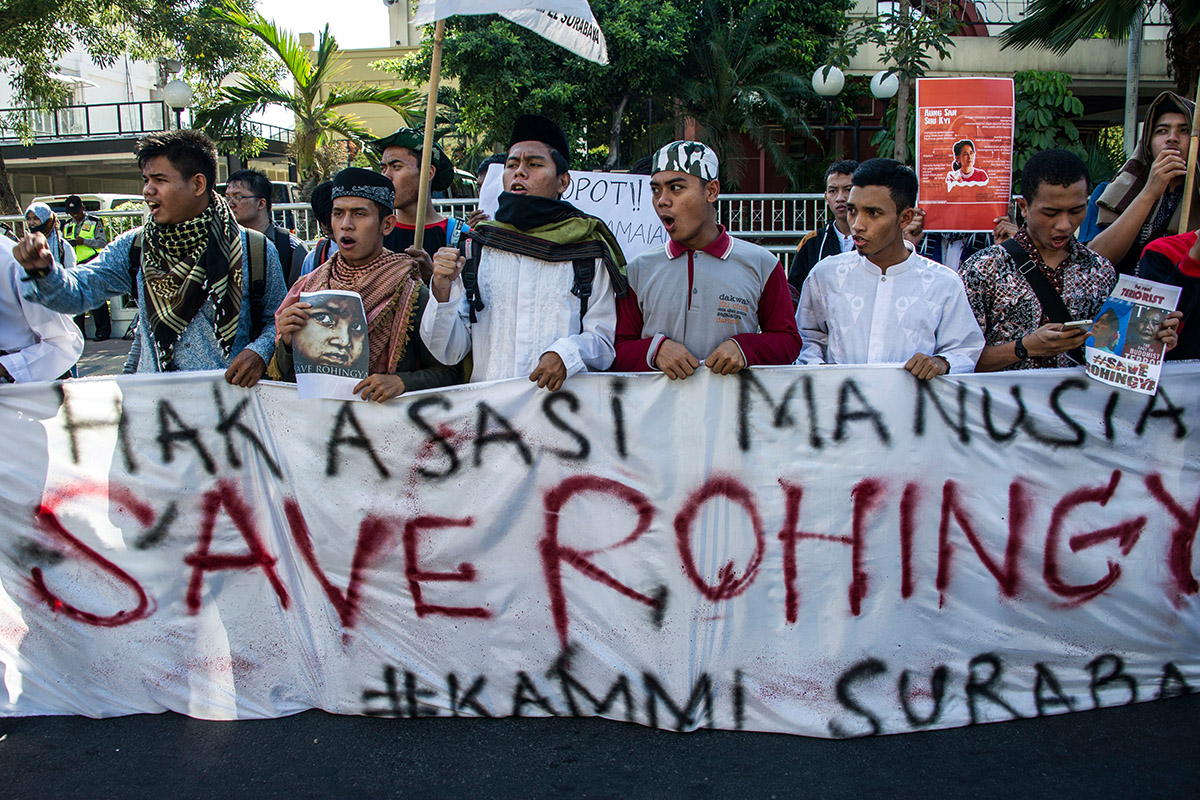Global humanitarian organisations have appealed to the international community to mount pressure on Myanmar’s government over ongoing violence against the Rohingya, an ethnic minority group in Myanmar. Many international organisations have raised concerns over the matter as the Muslim minority group has been facing discrimination from the government and its military for decades. It has also drawn attention from various governments across the world including India, Indonesia and Malaysia.
In light of the tragic situation in Myanmar’s Rakhine State, international organisations like the UNHCR (United Nations High Commissioner for Refugees), the UNICEF (United Nations Children's Fund) and Fortify Rights are offering assistance in the form of food, water and medical aid to the refugees.
In a recent statement, the UNHCR said that rapid needs assessments of the situation are being planned. With the continuous military onslaught in the Rakhine State of Myanmar, the organisation is concerned that the number of people requiring help may increase further over the coming days. The UNHCR is also aware of several reported instances where refugees were prevented from entering Bangladesh and said that these actions will put those who are seeking refuge in a grave situation. Bangladesh has hosted refugees from Myanmar for decades and the UNHCR believes it is of the utmost importance that the country continues to allow Rohingya fleeing violence to seek safety there. In addition to that, the UNHCR also calls on the international community to support Bangladesh in the matter by offering necessary aid.

The number of Rohingya refugees fleeing from the Rakhine State of Myanmar into Bangladesh
“We can’t stress enough the urgency of the situation. The Myanmar authorities are failing to protect civilians and save lives. International pressure is critically needed,” said Matthew Smith, CEO of Fortify Rights, a non-profit human rights organisation based in Southeast Asia. Smith stressed that Myanmar state security forces should immediately end attacks on civilians and ensure the protection of those fleeing the violence. “The situation is dire. Mass atrocity crimes are continuing. The civil government and military need to do everything in their power to immediately prevent more attacks.”
Pakistani Nobel peace laureate Malala Yousafzai, who calls for global intervention to protect the Muslim minority in Myanmar, urged Myanmar to stop the violence against Rohingya people. “Other countries, including my own country Pakistan, should follow Bangladesh’s example and give food, shelter and access to education to Rohingya families fleeing violence and terror,” she tweeted.
UNICEF executive director Anthony Lake said more than 125,000 Rohingya refugees have fled across the border from the Rakhine State in Myanmar, into Bangladesh since August 25, where 80 percent of them are women and children. Many more children in need of support and protection remain in areas of northern Rakhine that have been wrecked by violence. In Bangladesh, the UNICEF is scaling up its response to provide refugee children with protection, nutrition, health, water and sanitation support. However, in Myanmar, the UNICEF does not have access to the affected areas in northern Rakhine at the current moment. “We are unable to reach the 28,000 children to whom we were previously providing psychosocial care or the 4,000 children who were treated for malnutrition in Buthidaung and Maungdaw. Our clean water and sanitation work has been suspended, as school repair works are under way. Children on both sides of the border need urgent help and protection.”
ASEAN (Association of Southeast Asian Nations) member countries like Malaysia and Indonesia have also voiced their concern over the violence in Rakhine. Malaysia recognises the complexity of the situation and urges Myanmar to address the root causes of the problem. However, if the current situation in Rakhine is not addressed judiciously, it would result in the fleeing of more Rohingya people into neighbouring countries, including Malaysia. For these reasons, the Malaysian government views that it is vital for the Myanmar government to speedily implement the recommendation of the final report of the Advisory Commission on Rakhine State. Malaysia also reiterated its readiness to extend its support and assistance to the Myanmar government in addressing the conflict within the war-torn state. It was emphasised that member states of ASEAN are bound by international principles for the protection and promotion of human rights, which are enshrined in the ASEAN Charter.
Indonesia has also expressed its “anguish” over the violent acts that are currently happening in Rakhine and hopes that the matter will be resolved objectively. Indonesia also committed itself to the cause and has sent its Foreign Minister Retro Marsudi to meet and discuss the matter with the Myanmar leaders.
